
image text translation
(1)How the Great Richard Nisbet Thought Works The Four Seasons Unconscious Primitive Ability
(2)A dating tip that uses unconsciousness!!
(3)If you want to be liked by someone, get a cup of hot coffee
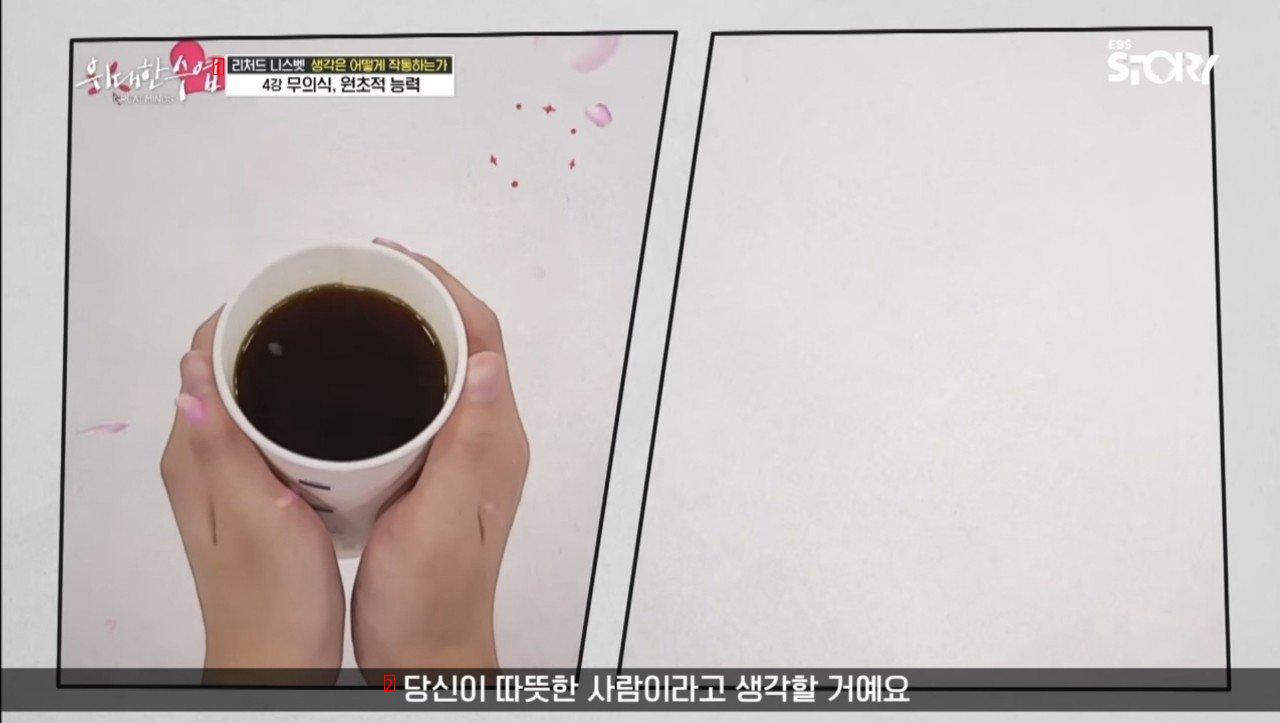
image text translation
(1)How Richard Nisbet’s Thoughts Work: The Four Unconscious Fundamental Capabilities
(2)They’ll think you’re a warm person
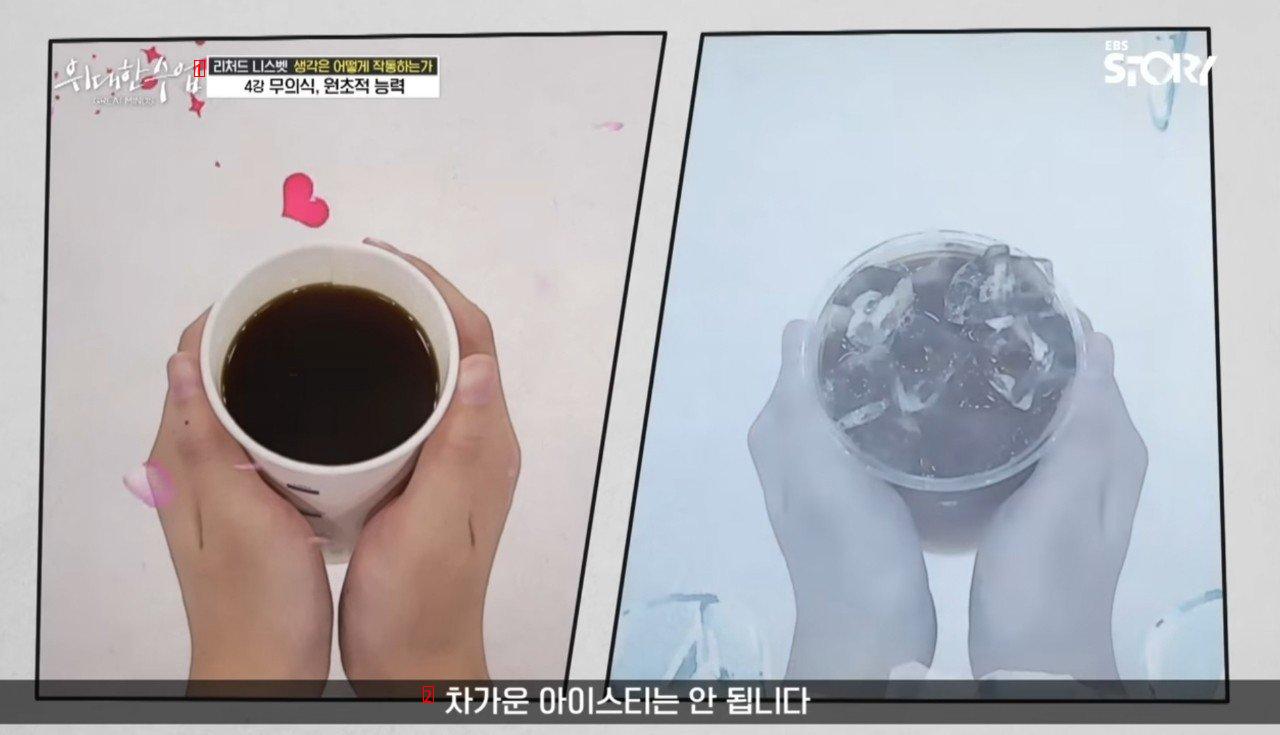
image text translation
(1)How Richard Nisbet’s Thoughts Work: The Four Unconscious Fundamental Capabilities
(2)No cold iced tea
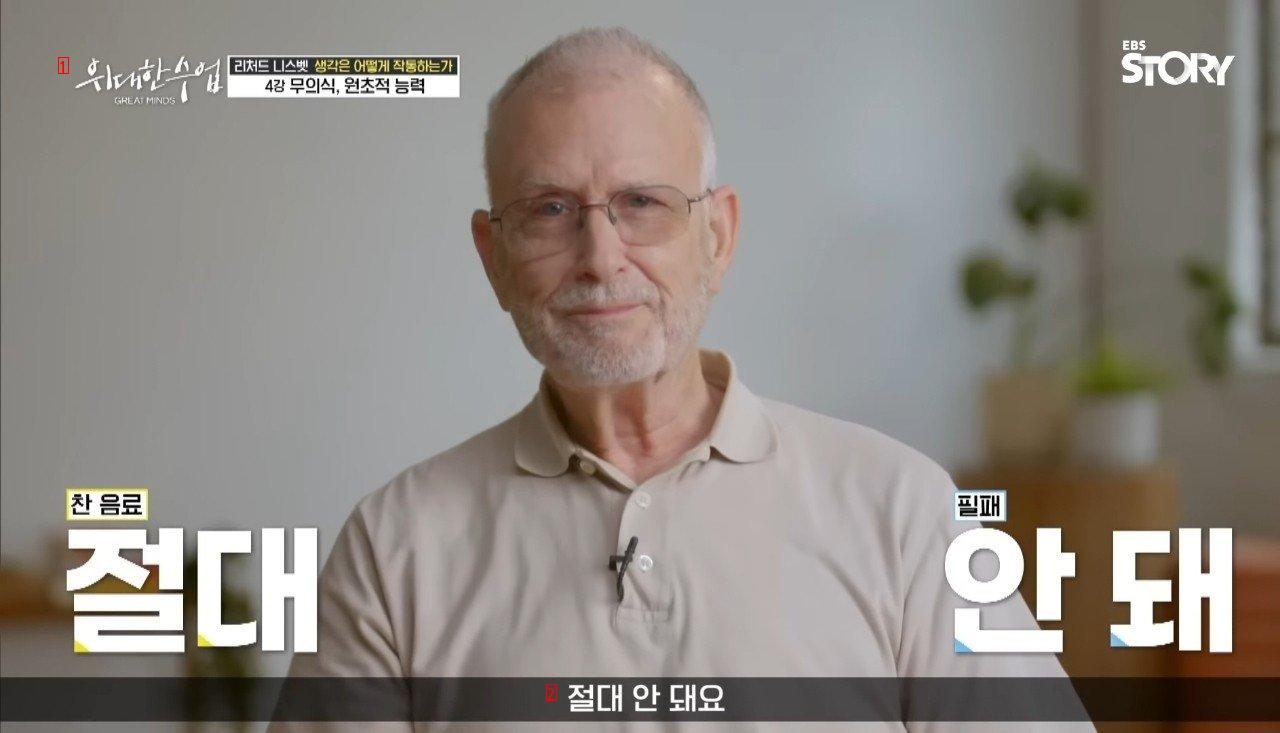
image text translation
(1)How the Great Richard Nisbet Thought Works The Four Seasons Unconscious Primitive Ability
(2)No way.
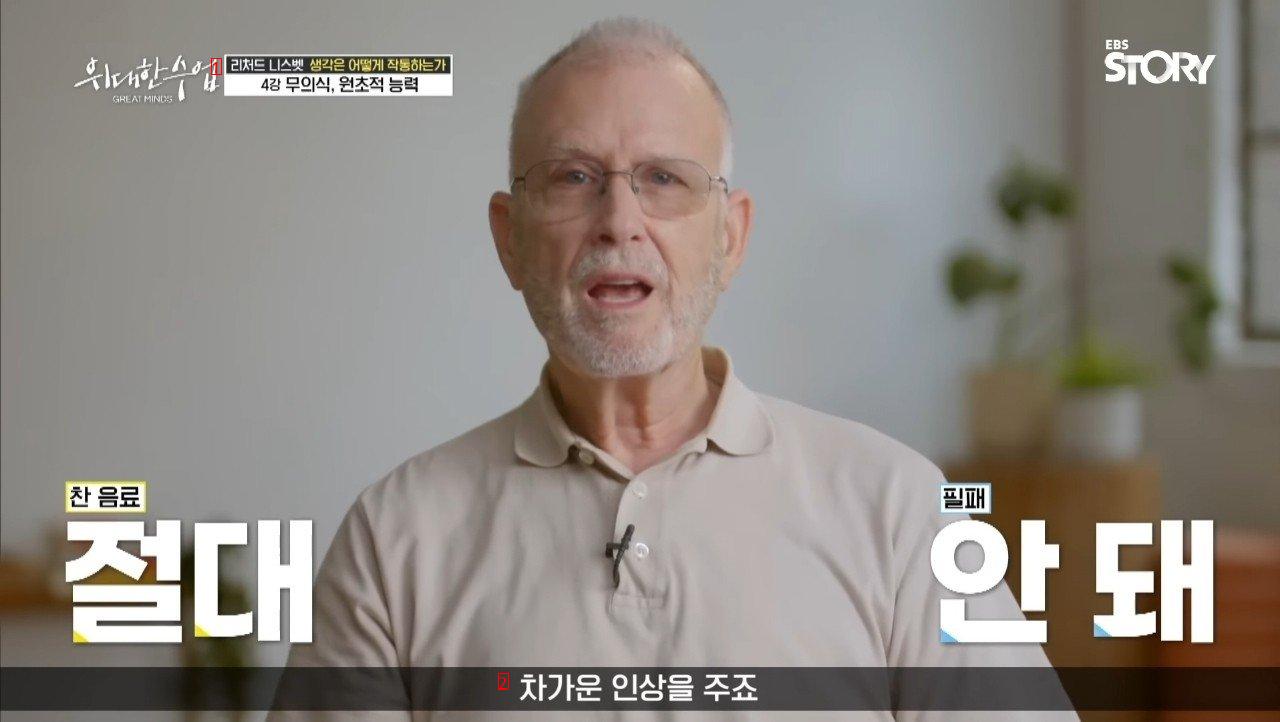
image text translation
(1)How Richard Nisbet Thought Works Class 4 Unconscious Primitive Ability Great Class
(2)It gives a cold impression
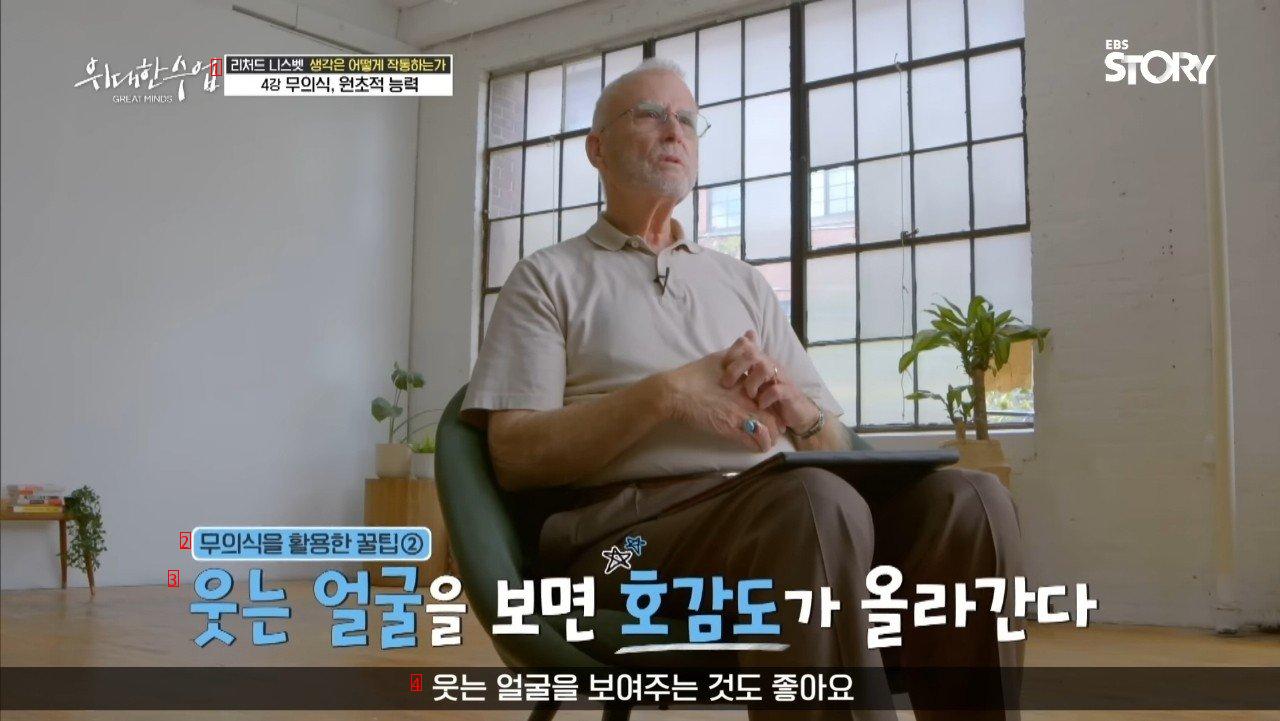
image text translation
(1)How Richard Nisbet’s Thoughts Work: The Four Unconscious Fundamental Capabilities
(2)Tips for using unconsciousness ②
(3)When I see a smile on my face, my favorability goes up
(4)It’s good to show your smiling face

image text translation
(1)How the Great Richard Nisbet Thought Works The Four Seasons Unconscious Primitive Ability
(2)Tips for using unconsciousness ②
(3)When I see a smile on my face, my favorability goes up
(4)0001 seconds is an instant. You can’t recognize my smile
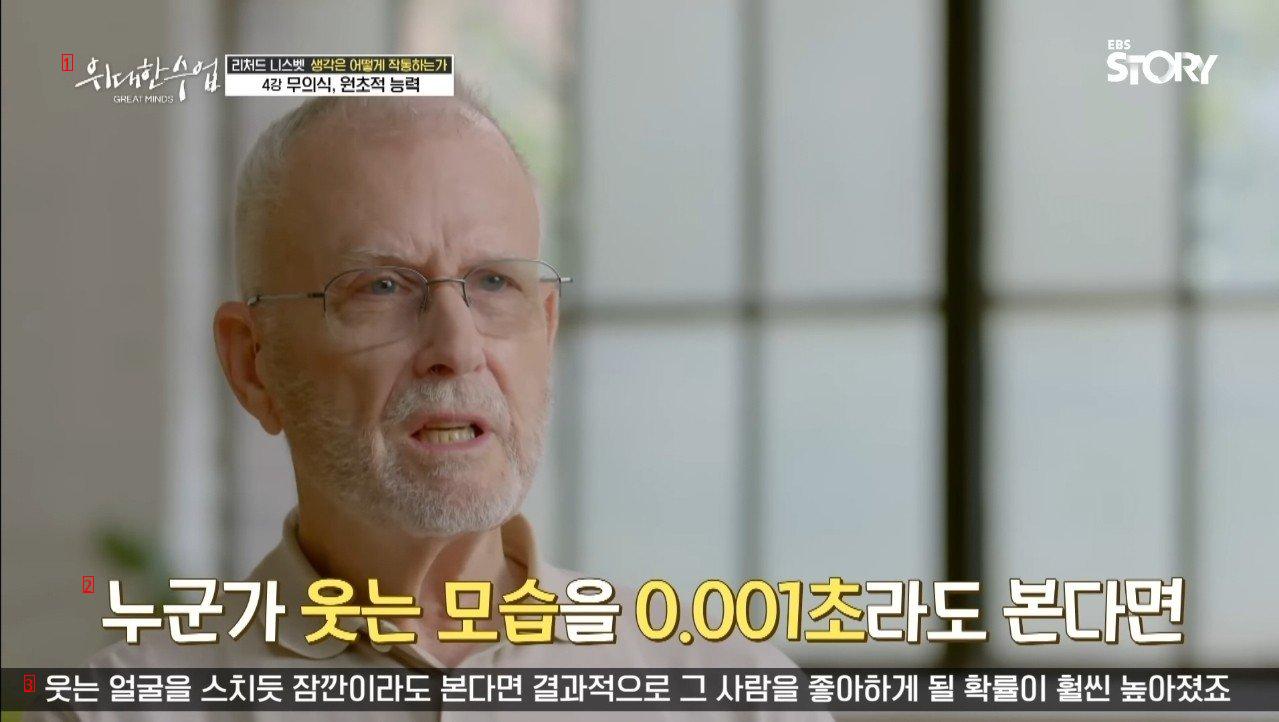
image text translation
(1)How the Great Richard Nisbet Thought Works The Four Seasons Unconscious Primitive Ability
(2)If you see someone smiling for even one second
(3)If you look at her for a moment, like a smile, you’re more likely to like him
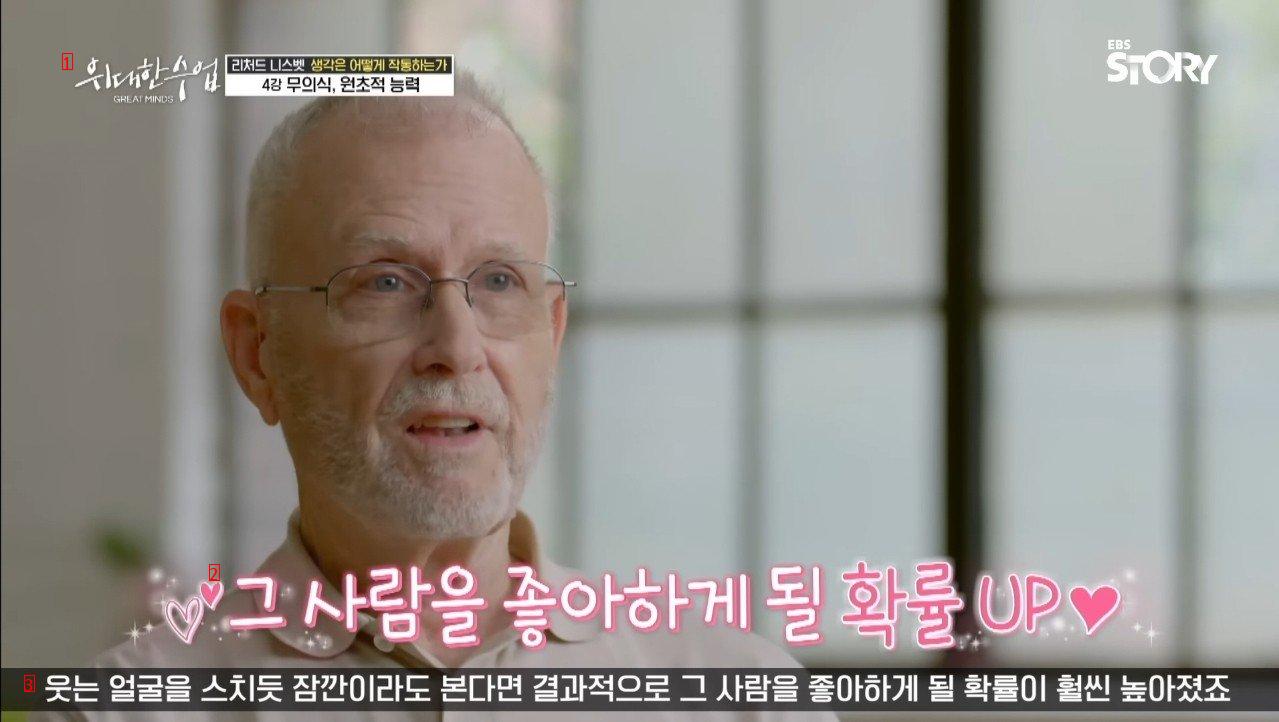
image text translation
(1)How the Great Lesson Richard Nisbet Thought Works Class 4 Unconscious Primitive Ability
(2)The probability of liking that person is UPV
(3)If you look at her for a moment, like a smile, you’re more likely to like him
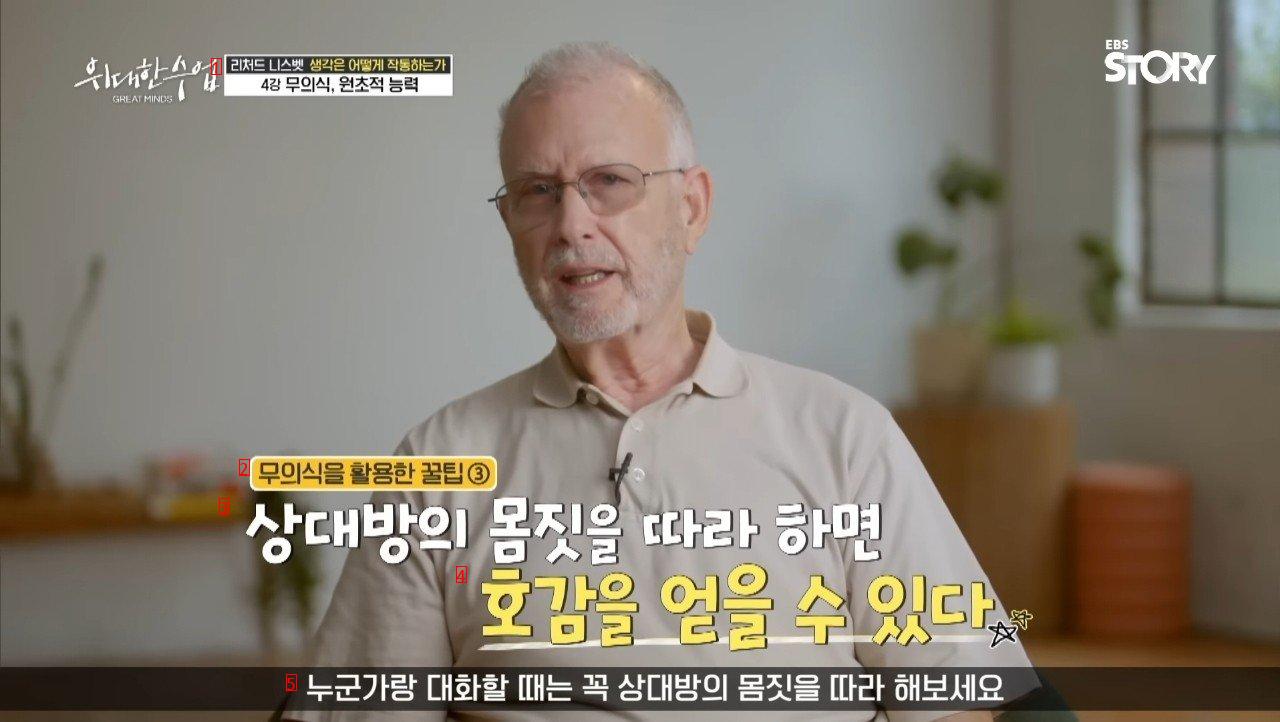
image text translation
(1)How Richard Nisbet’s Thoughts Work: The Four Unconscious Fundamental Capabilities
(2)Tips for using unconsciousness ③
(3)If you follow the other person’s gesture
(4)to be able to win favor with
(5)When you’re talking to someone, make sure to follow the other person’s
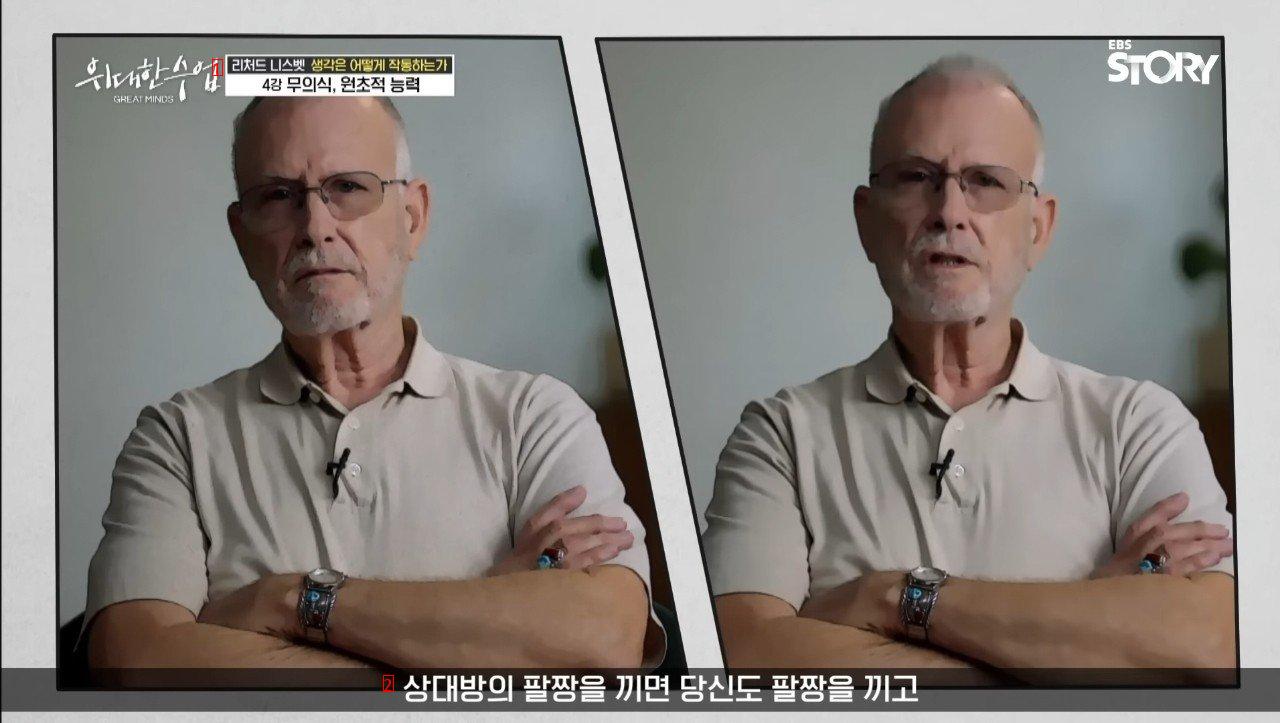
image text translation
(1)How Richard Nisbet’s Thoughts Work: The Four Unconscious Fundamental Capabilities
(2)If you fold your arms, you fold your arms
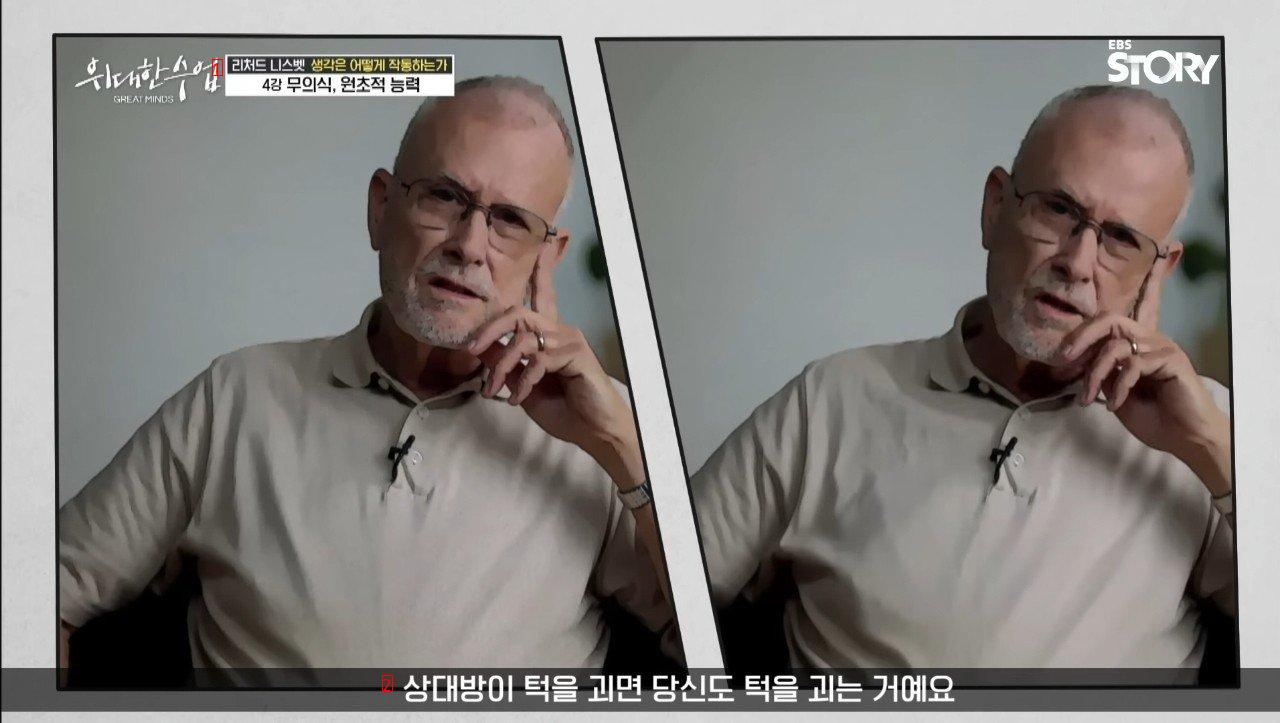
image text translation
(1)How Richard Nisbet’s Thoughts Work: The Four Unconscious Fundamental Capabilities
(2)If the other person puts his chin on it, you put your chin on it, too
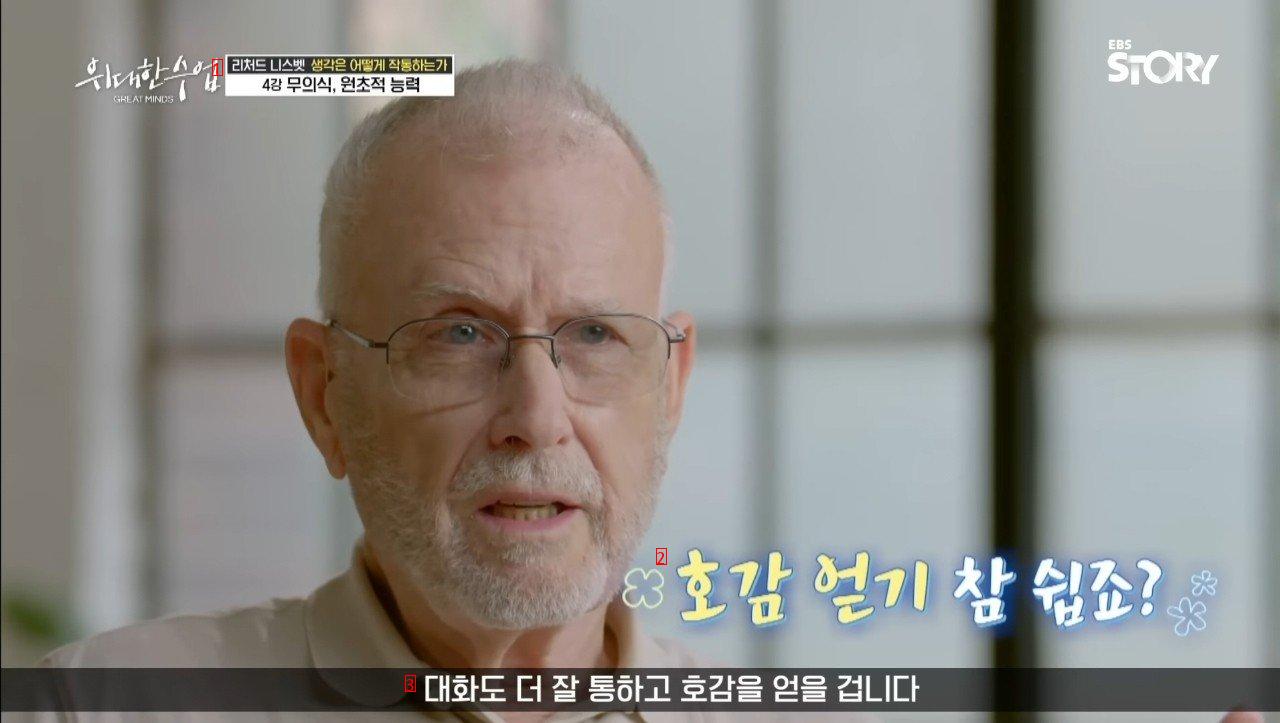
image text translation
(1)How Richard Nisbet’s Thoughts Work: The Four Unconscious Fundamental Capabilities
(2)It’s easy to get a favorable impression
(3)You’ll be able to communicate better, and you’ll be liked better
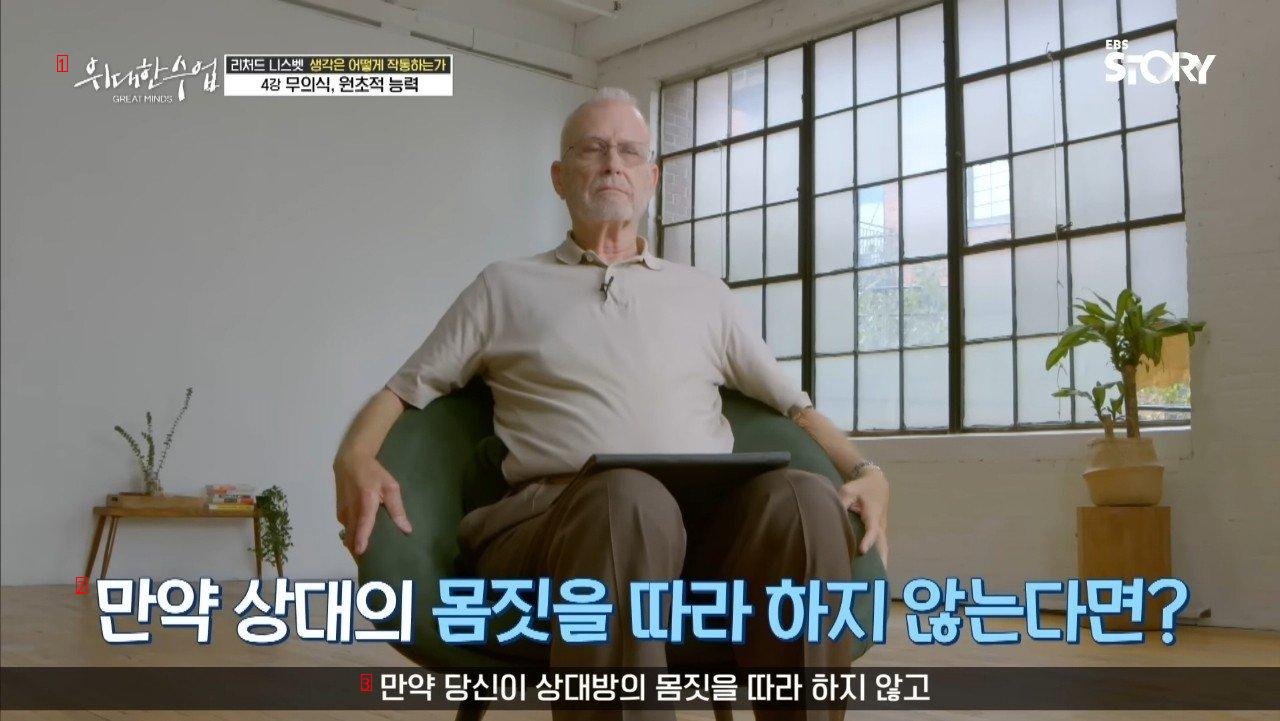
image text translation
(1)How the Great Richard Nisbet Thought Works The Four Seasons Unconscious Primitive Ability
(2)If you don’t copy the other person’s gesture
(3)If you don’t copy the other person’s gesture

image text translation
(1)How the Great Richard Nisbet Thought Works The Four Seasons Unconscious Primitive Ability
(2)If you don’t copy the other person’s gesture
(3)If you put your arms down while resting your chin, the atmosphere becomes awkward, and it’s hard to get a favorable impression

image text translation
(1)How the Great Richard Nisbet Thought Works The Four Seasons Unconscious Primitive Ability
(2)The other person will feel uncomfortable
(3)If you put your arms down while resting your chin, the atmosphere becomes awkward, and it’s hard to get a favorable impression
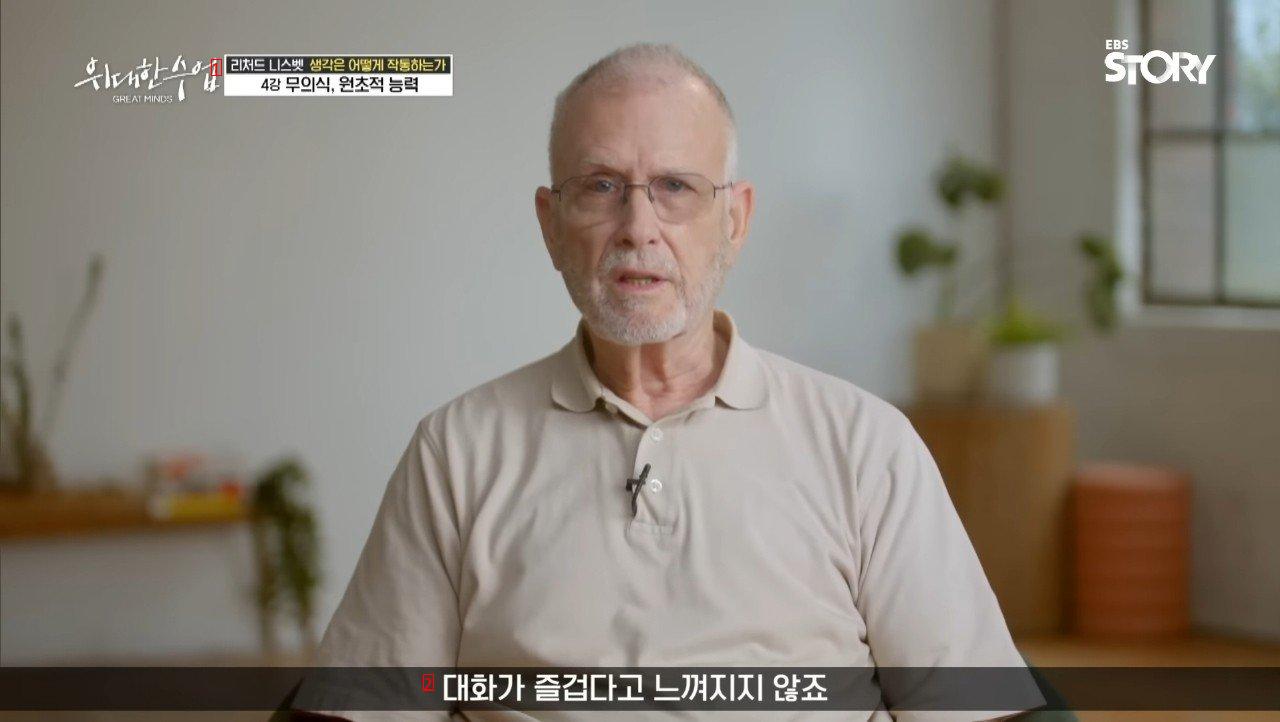
image text translation
(1)How Richard Nisbet Thought Works Class 4 Unconscious Primitive Ability Great Class
(2)I don’t think the conversation is fun

image text translation
(1)How the Great Richard Nisbet Thought Works The Four Seasons Unconscious Primitive Ability
(2)a problem that one’s mind can’t solve
(3)unconsciousness can solve
(4)Sometimes it’s better to let the unconscious solve a problem than to solve it consciously

image text translation
(1)Richard Nisbet – Richard Nisbet
(2)Professor of Psychology, University of Michigan 1976–present
(3)Professor of Psychology at Yale University 1966-1976
(4)William James Fellowship Selection 1996
(5)- Social psychologist first member of the National Academy of Sciences 1991
(6)- The American Psychological Association and the American Psychological Association
!
